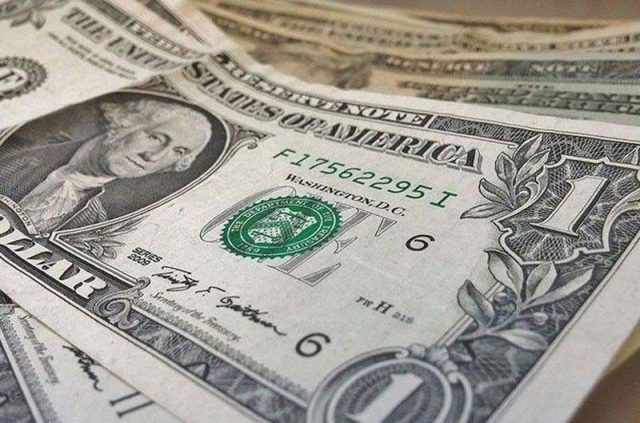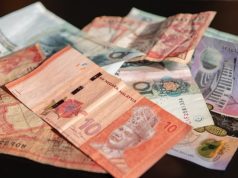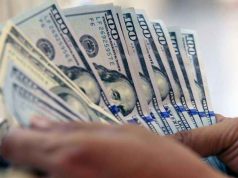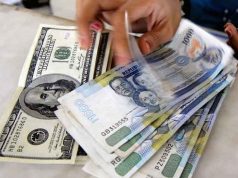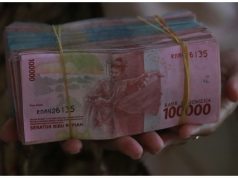- US Treasury yields, strong dollar weigh on emerging Asia FX
- South Korean won, shares edge higher after Friday’s sharp fall
- Indonesian rupiah up 0.5%, Thai baht gains 0.3%
Most Asian currencies were subdued on Monday, pressured by high U.S. Treasury yields and a firm dollar, while South Korean markets recovered slightly after last week’s parliament vote to impeach acting president Han Duck-soo.
Equities in the region edged higher, with stocks in Malaysia <.KLSE> and Singapore <.STI> each gaining 0.3%.
The South Korean won <KRW=KFTC> rose 0.2% after falling to a more than 15-year low on Friday, following Han’s impeachment. Equities <.KS11> climbed 0.4% after Friday’s fall of about 1%.
“The political uncertainties and faster rate cut pace should keep the won on the back foot in the coming months,” said Ken Cheung, chief Asia FX strategist at Mizuho Bank.
The won is the worst performing currency in emerging Asia so far this year, having lost some 12% amid political turmoil, weak exports, fears of U.S. tariffs and an unexpected rate cut from the Bank of Korea.
The country’s factory output fell more sharply than expected in November amid slowing exports and weakening business confidence, data showed on Monday.
Most other Asian currencies were largely unchanged amid pressure from high U.S. Treasury yields and with the dollar at a multimonth peak.
Yields on 10-year Treasuries <US10YT=RR> are near eight-month highs at 4.631% and ending the year around 75 basis points above where they started it, despite the Fed making 100 basis points of cuts to cash rates.
The Federal Reserve’s hawkish tilt at its December policy meeting has weighed on Asian currencies, which were already under pressure from fears of U.S. tariffs in 2025.
The Indonesian rupiah <IDR=> rose 0.5% on Monday. The Thai baht <THB=TH> climbed 0.3% while equities <.SETI> gained 0.4%.
Thailand will implement a global minimum corporate tax of 15% on multinational enterprises from the beginning of January, the finance ministry said on Friday.
Mizuho’s Cheung said the move should be supportive of the baht over the medium term, as it signals a step towards joining the Organisation for Economic Cooperation and Development (OECD).
HIGHLIGHTS:
- ** Japan’s factory activity shrinks at slower pace, PMI shows
- ** China’s Nov industrial profits narrow decline but 2024 likely worst year in decades
- ** Thai advisory council says candidate for cbank chair ineligible due to recent political role
| Asian currencies and stocks as at 0345 GMT | ||||||
| COUNTRY | FX RIC | FX DAILY % | FX YTD % | INDEX | STOCKS DAILY % | STOCKS YTD % |
| Japan | <JPY=> | +0.02 | -10.60 | <.N225> | -0.85 | 19.35 |
| China | <CNY=CFXS> | -0.06 | -2.76 | <.SSEC> | -0.09 | 14.19 |
| India | <INR=IN> | +0.03 | -2.69 | <.NSEI> | 0.00 | 9.58 |
| Indonesia | <IDR=> | +0.46 | -4.70 | <.JKSE> | -0.04 | -3.28 |
| Malaysia | <MYR=> | +0.07 | +2.80 | <.KLSE> | 0.26 | 12.21 |
| Philippines | <PHP=> | – | -4.50 | <.PSI> | – | 1.22 |
| S.Korea | <KRW=KFTC> | +0.15 | -12.28 | <.KS11> | 0.41 | -9.07 |
| Singapore | <SGD=> | +0.08 | -2.80 | <.STI> | 0.29 | 16.73 |
| Taiwan | <TWD=TP> | -0.01 | -6.07 | <.TWII> | 0.13 | 29.98 |
| Thailand | <THB=TH> | +0.32 | +0.66 | <.SETI> | 0.40 | -0.62 |
—Reporting by John Biju in Bengaluru; Editing by Kate Mayberry

